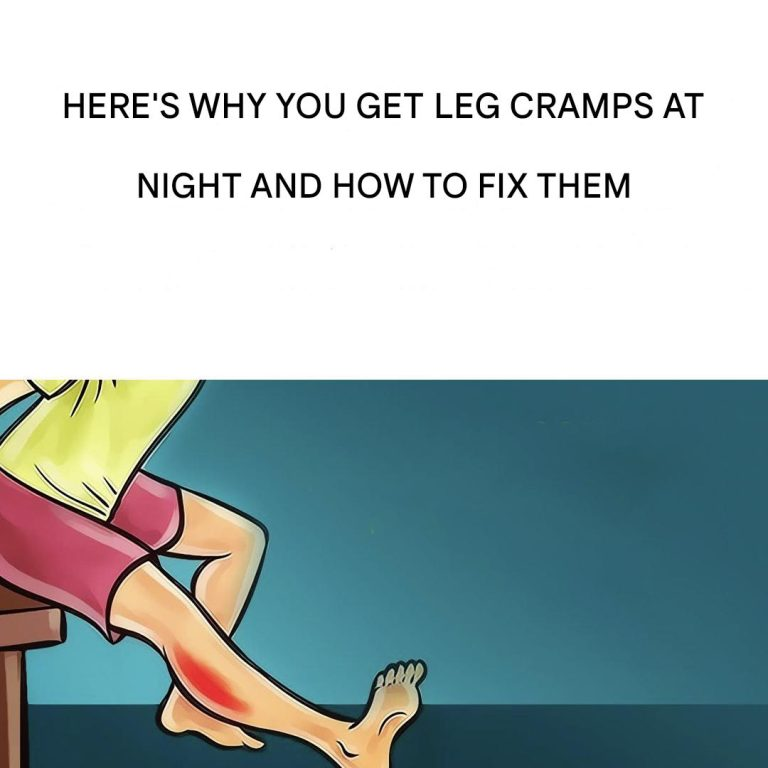ADVERTISEMENT
Engaging in physical activity that stresses your muscles, especially if they aren’t accustomed to it, can cause cramps during rest periods like sleep.
Nerve Compression:
Conditions like spinal issues or nerve compression (e.g., sciatica) can lead to cramps, as the nerves may become irritated or pinched, causing the muscles to cramp involuntarily.
Pregnancy:
Pregnant women, especially in the second and third trimesters, are more prone to leg cramps. This is often due to increased pressure on nerves and blood vessels and changes in calcium and magnesium levels.
Medications:
Certain medications like diuretics, statins, or blood pressure drugs can lead to leg cramps as a side effect by affecting fluid or electrolyte balance.
Age:
Older adults tend to experience leg cramps more frequently. This could be due to muscle mass loss, poorer circulation, and medication side effects.
How to Fix or Prevent Leg Cramps:
Stay Hydrated:
Drinking plenty of water throughout the day helps maintain electrolyte balance and prevent dehydration-related cramps.
Stretch and Exercise Regularly:
Stretch your calves and leg muscles before bed. Simple stretches like flexing your feet or standing with your heels off the ground can improve flexibility and reduce the likelihood of cramps.
Use Heat or Cold:
Applying a heating pad or warm towel to your legs can relax tense muscles, while ice packs might help reduce inflammation if cramps are due to injury.
Massage and Gentle Movement:
Gently massaging the affected muscle or getting up to walk around can help relieve cramps by improving blood flow and releasing muscle tension.
Electrolyte Supplements:
If you’re low on potassium, magnesium, or calcium, consider taking supplements or eating foods rich in these nutrients. Bananas, leafy greens, nuts, and dairy are great sources.
Check Your Medications:
Consult your doctor to see if any of your medications could be contributing to cramps. They may recommend alternatives or additional treatments.
Correct Sleeping Posture:
Try sleeping with your feet slightly elevated or avoid keeping your feet pointed downward for long periods. This can reduce the strain on your calf muscles.
Wear Proper Footwear:
Wearing shoes with proper arch support throughout the day may help reduce the risk of cramps at night, especially if you have flat feet or other foot issues.
Magnesium-Rich Bath:
Taking a warm bath with Epsom salts (which contain magnesium) can help relax muscles and relieve cramps.
Consider a Nighttime Supplement:
Some people find that taking a low dose of magnesium before bed helps reduce nighttime leg cramps. However, it’s best to consult with a healthcare provider before adding supplements.
By understanding the causes of leg cramps and incorporating these strategies, you can significantly reduce or even eliminate nighttime leg cramps. If cramps persist despite these efforts, it might be worth consulting a healthcare provider for further evaluation.
ADVERTISEMENT
ADVERTISEMENT
